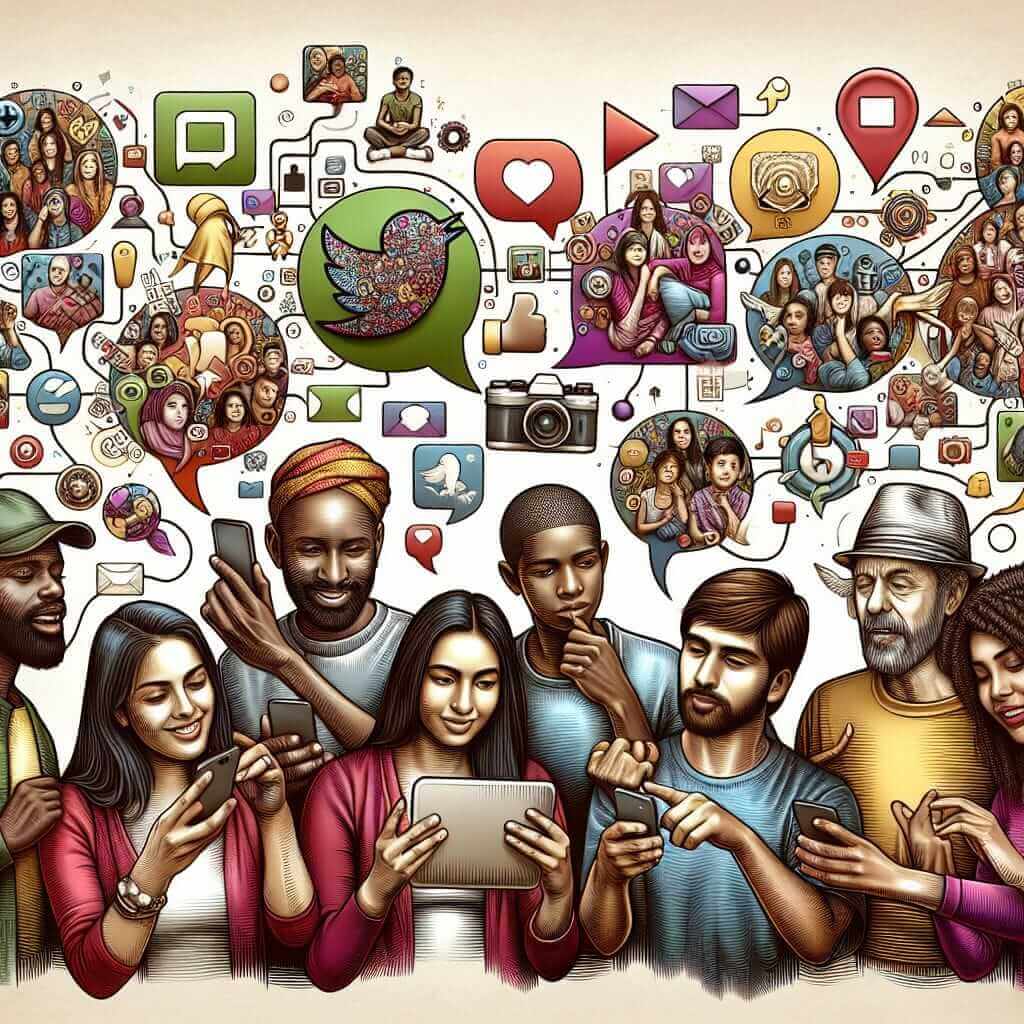Introduction:
Nội dung bài viết
Digital media has become a ubiquitous presence in our daily lives, fundamentally altering the ways in which information is disseminated and opinions are formed. This topic has frequently appeared in IELTS Writing Task 2 examinations, reflecting its relevance and complexity. Understanding how digital media influences public opinion is crucial for writing high-scoring essays. This article will guide you through a comprehensive analysis of this subject, providing a detailed sample essay, useful vocabulary, and key points to remember when tackling this topic.
Research & Keywords:
To fully grasp the depth of this subject, it’s essential to explore related concepts and queries. Some important LSI keywords and frequently asked questions include:
- Influence of social media
- Media bias and public opinion
- Role of digital platforms
- Online news consumption
- Social media activism
- Cultural impact of digital media
Referencing these related concepts will make your essay richer and more nuanced.
Discussing a Real IELTS Essay Question
Selected Essay Question:
Given the prevalence and importance of digital media, let’s consider a genuine IELTS essay question that pertains to this topic:
“Digital media plays an ever-increasing role in shaping public opinion. To what extent do you agree or disagree with this statement?”
Analyzing the Essay Question:
- Identify Keywords: “Digital media,” “shaping public opinion,” “to what extent,” “agree or disagree.”
- Question Type: Opinion (To what extent do you agree or disagree?)
- Task: You need to present your viewpoint on how influential digital media is in shaping public opinion and provide supporting arguments.
Sample Essay:
Introduction
In recent years, digital media has ascended to the forefront of public discourse, significantly influencing the opinions and beliefs of individuals worldwide. I strongly agree that digital media plays a pivotal role in shaping public opinion due to its widespread accessibility, immediacy, and the pervasive nature of social networking platforms.
First Supporting Argument
Firstly, the almost universal accessibility of digital media makes it a powerful tool for shaping public opinion. People from all walks of life can access news and information via the internet, breaking down previous barriers to information. For instance, news websites and social media platforms allow individuals to stay informed about global events in real-time. This democratization of information contributes to the formulation of public opinions that are more informed and diverse.
Second Supporting Argument
Secondly, the immediacy of digital media ensures that information spreads rapidly, often faster than traditional media. This immediate nature enables a swift response to events, allowing the public to form opinions based on the most current information available. A prime example of this is the use of Twitter during political elections, where candidates and citizens alike can share their thoughts instantaneously, swaying public opinion within moments of an event occurring.

Third Supporting Argument
Moreover, social networking platforms, such as Facebook, Twitter, and Instagram, have amplified the pervasive influence of digital media. These platforms do not merely disseminate information; they also facilitate discussions and debates, allowing opinions to be voiced and countered. These interactions can significantly impact how individuals perceive various issues. For example, social media activism has brought attention to numerous social issues, leading to changes in public sentiment and even policy reforms.
Counterargument
Critics may argue that the information available on digital media can be unreliable and biased. While this is a valid concern, it underscores the necessity of media literacy. Educating the public to critically evaluate information sources can mitigate the risk of misinformation, allowing digital media to be a beneficial tool in shaping informed public opinions.
Conclusion
In conclusion, digital media undoubtedly plays a crucial role in shaping public opinion through its accessibility, immediacy, and interactive nature. Despite the potential for misinformation, cultivating media literacy can ensure that the public remains well-informed and discerning. As digital media continues to evolve, its influence on public opinion will likely become even more pronounced.
Word Count: 356
Key Points to Remember When Writing About This Topic:
- Balanced Structure: Ensure your essay has a clear introduction, body, and conclusion.
- Specific Examples: Use specific examples to substantiate your points.
- Counterarguments: Acknowledge counterarguments to show a well-rounded understanding.
- Cohesive Devices: Use linking words and phrases to connect ideas smoothly.
Challenging Vocabulary and Definitions:
- Accessibility (n) /ˌæksɛsɪˈbɪlɪti/: The quality of being easy to obtain or use.
- Democratization (n) /dɪˌmɒkrətaɪˈzeɪʃən/: The process of making something accessible to everyone.
- Immediacy (n) /ɪˈmiːdiəsi/: The quality of bringing one into direct and instant involvement.
- Pervasive (adj) /pəˈveɪsɪv/: Spreading widely throughout an area or a group of people.
- Mitigate (v) /ˈmɪtɪˌɡeɪt/: To make less severe, serious, or painful.
Conclusion:
Digital media’s role in shaping public opinion is a dynamic and multifaceted topic that is increasingly relevant. By understanding how to craft a coherent and persuasive essay on this subject, you can enhance your IELTS Writing Task 2 performance. Future questions may focus on specific aspects such as the influence of social media activism or media representation. Practicing with varied questions will prepare you to tackle any related prompts confidently.
For further reading, consider these related subjects: